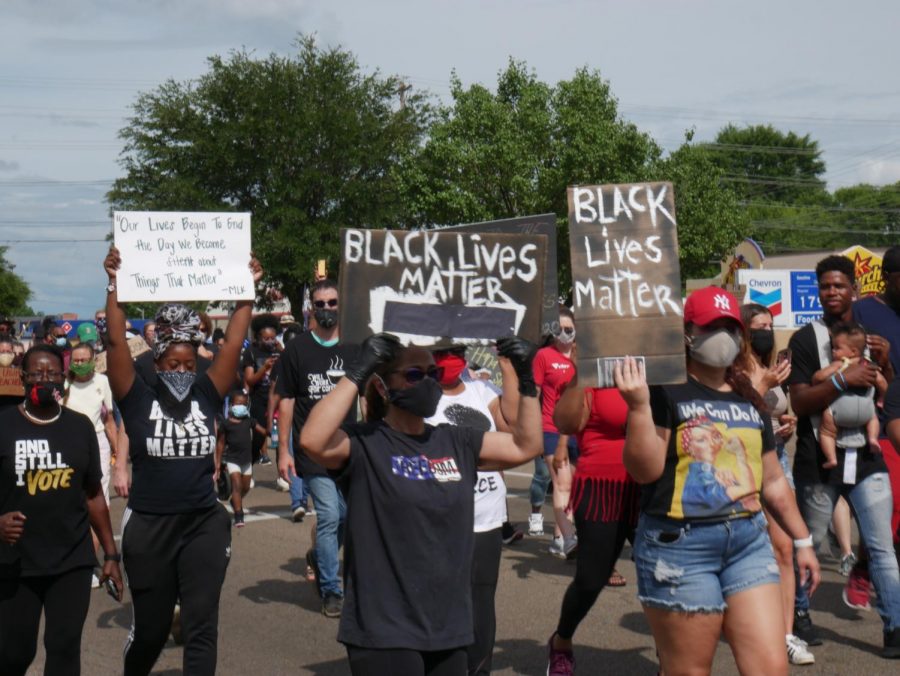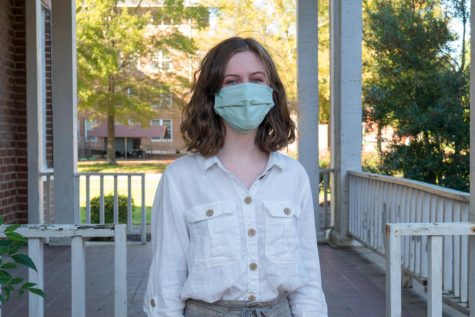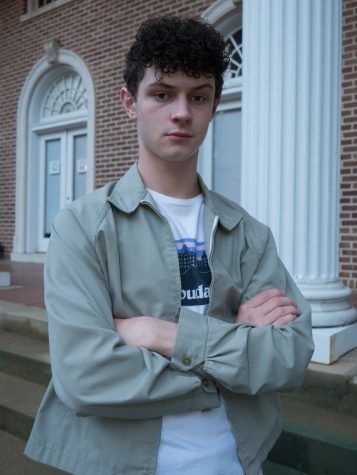Protests: MSMS students look to the past and future
The Capitol riot earlier this year made many people question what constitutes a proper protest.
January 21, 2021
As America’s political divide has deepened, protestors increasingly have taken to the streets, and among them have been three MSMS student activists.
Caleb Jenkins, a junior, attended a Black Lives Matter (BLM) protest in his hometown of Columbus in March of 2020.
“We marched from the police station to the courthouse, and there looked to be around 1,000 people in attendance,” Jenkins said. “I was very proud to be a part of the movement.”
Junior Chloe Sharp of Oxford, described her belief in the power of protest to create change on the governmental level, whether that be in regard to gun violence, crises at the US-Mexico border or police brutality.
“I have participated in my local March for Science, March For Our Lives, Keep Families Together protest and two Black Lives Matter protests,” Sharp said. “I think protests are very important, and the participation of young people in protests is very important as well because protesting is sometimes the only way our voices can be heard.”
Senior Fiona Dawe attended a BLM protest in Starkville, which she described as “like a community event. There were lots of prominent members of the community, such as pastors and leaders, who spoke at the event.”
Although she said violence is understandable in some cases where peaceful protest does not work, Dawe stressed that peaceful protests are the ideal. “I think it’s good that most of the protests were peaceful, as it makes it harder for people to demonize a cause,” she said.
Dawe added: “It is important to note that there is a large difference between property damage from a few BLM protests and Trump supporters breaking into the Capitol with the intent to kill senators,” Dawe said. “Most of the time, violent protests come from people who have been violently stigmatized themselves. It is the only way that they can be heard, especially when they are usually the ones who are being killed, incarcerated and pushed to the fringes of society. For the Trump rioters, this was not the case. Their intent was to harm other people over losing a democratic election.”
Jenkins gave an example of a time when a more forceful approach seemed necessary.
“While a peaceful protest is obviously ideal, it often doesn’t get the message across,” Jenkins said. “I am not advocating for violent protests. However, historically, violence has been used to get a message across more effectively, take the Stonewall riot for example.
“Protest is meant to show the government that the people are upset about something and sometimes a little civil unrest gets that message across better than a candlelight vigil,” he added. “In the words of Malcom X, ‘Concerning nonviolence, it is criminal to teach a man not to defend himself when he is the constant victim of brutal attacks.'”
Sharp provided examples of peaceful protests that created change in her own community and beyond into the wider Mississippi area.
“The Black Lives Matter protests in my town helped persuade the University of Mississippi to move the Confederate statue on campus to the Confederate cemetery, rather than memorializing it for everyone to see. The Black Lives Matter protests across the state sparked the decision to get a new state flag as well.”
The line between what is classified as a protest and what bleeds into a riot can be confusingly blurred at times. Both Sharp and Dawe believe that the line should be drawn at “protests that endanger others,” as Sharp stated. Jenkins, however, believed that the line is never truly clear.
“I do not feel we should define what a protest ‘should be allowed to be’ because that would defeat the point of protesting in the first place,” Jenkins said.
The students said they would encourage other young people to show up at protests in the future. Jenkins said there is power in numbers.
“One person alone likely won’t be able to make a difference, but when an entire group of people gets together to argue a single point, those in power have to at least consider their position,” Jenkins said.
Sharp said that protesting isn’t always a pleasant event, but that it is important in order to keep democracy intact.
“Protesting calls attention to subjects that people don’t like to talk about because they’re uncomfortable,” she said, “but these conversations are necessary in a functioning society.”










